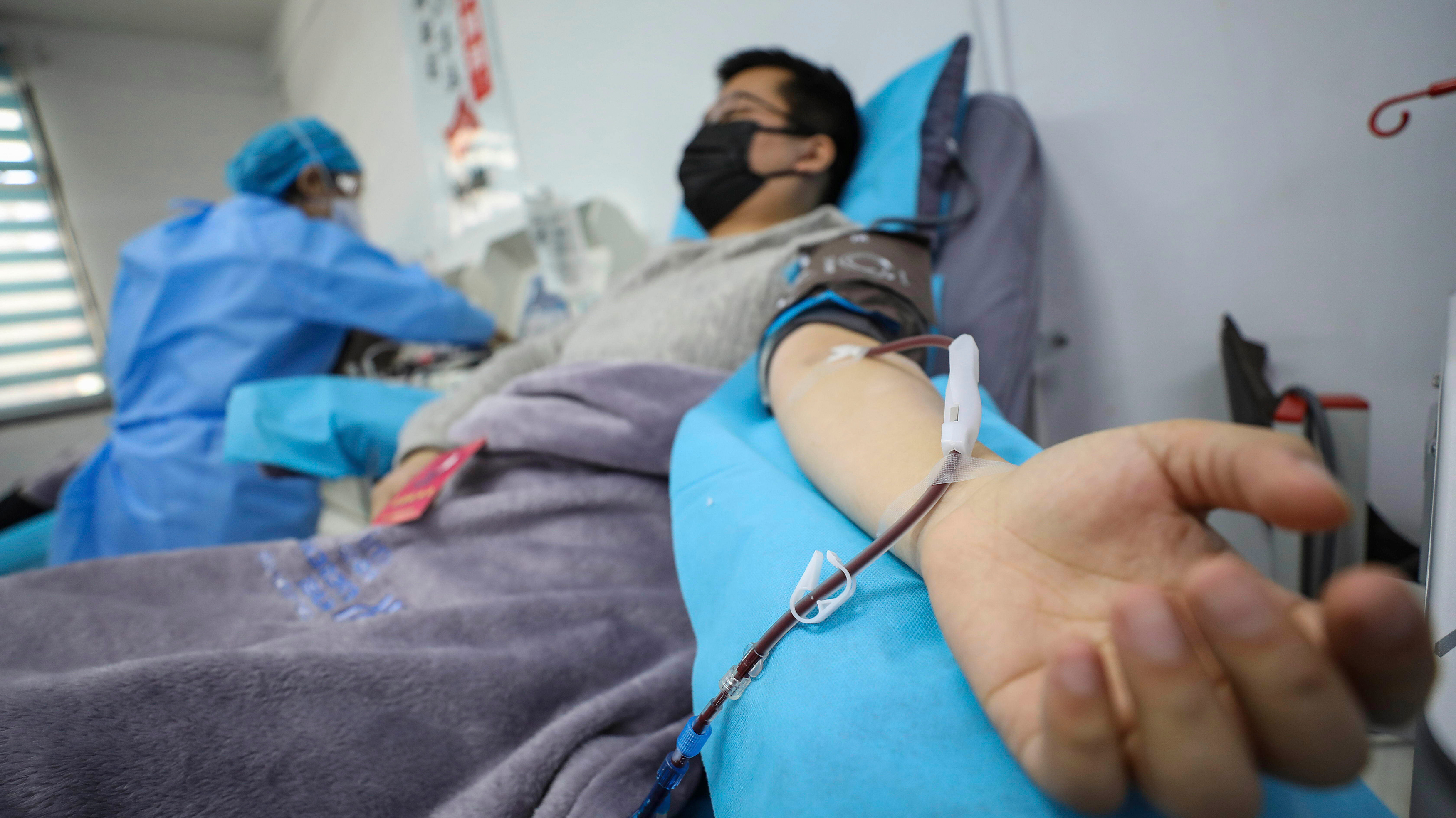Blood plasma taken from covid-19 survivors might help patients fight off the disease

Transfusions of blood serum from people who’ve recovered from covid-19 could help severe cases recover, according to a new study from China.
Plasma donation: The concept of using blood from survivors—or “convalescent plasma”—isn’t new, but it’s now being tried against covid-19 because there aren’t any drugs known to work. A survivor’s blood is charged up with antibodies against the virus. Give these to someone else, and they can give a temporary assist by interfering with the virus until that person mounts an immune response.
You can read all our coverage of the coronavirus/covid-19 outbreak for free, and also sign up for our coronavirus newsletter. But please consider subscribing to support our nonprofit journalism.
Positive result: The Chinese study, authored by scientists working for state-owned Sinopharm, wasn’t randomized, so benefits from plasma aren’t proven with certainty. But the 10 severely affected patients they treated with a half a Coke can’s worth of plasma seemed to do much better after three days. In several of the patients the virus cleared up entirely, leading the authors to conclude that plasma “can serve as a promising rescue option” for severe covid-19 cases. The report follows a previous one from China involving five patients.
Recruiting now: US hospitals have been scrambling to find blood donors and are starting to try plasma transfusions, too. The American Association of Blood Banks has set up a web page so people recovered from covid-19 can find out where to donate blood. So has the Red Cross. People must be “fully recovered” to donate. The US Food and Drug Administration says people should wait 14 days after symptoms to donate.
Deep Dive
Biotechnology and health
How scientists traced a mysterious covid case back to six toilets
When wastewater surveillance turns into a hunt for a single infected individual, the ethics get tricky.
An AI-driven “factory of drugs” claims to have hit a big milestone
Insilico is part of a wave of companies betting on AI as the "next amazing revolution" in biology
The quest to legitimize longevity medicine
Longevity clinics offer a mix of services that largely cater to the wealthy. Now there’s a push to establish their work as a credible medical field.
There is a new most expensive drug in the world. Price tag: $4.25 million
But will the latest gene therapy suffer the curse of the costliest drug?
Stay connected
Get the latest updates from
MIT Technology Review
Discover special offers, top stories, upcoming events, and more.